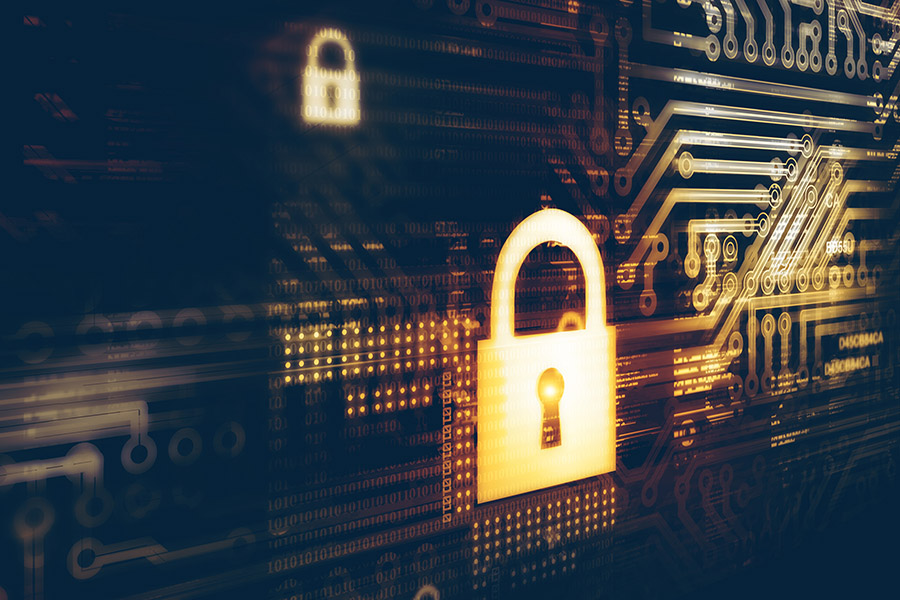PREVENT INTERNET THREATS
Internet or Interconnected Network is now a part and parcel of our lives. Our lives are now dependent on this technology as it has become a major part of our daily lives.

Strengthening Your Internet Security: Essential Tips to Protect Your Online Presence
As the internet becomes an integral part of our daily lives, understanding and implementing robust security measures is crucial to protecting our digital information. Cyber threats range from viruses to phishing attacks, and staying informed and proactive is your first line of defense.
Understanding the Risks
Viruses and Malware: Malicious software can infiltrate your system, causing damage and stealing information.
Phishing Attacks: Deceptive attempts to obtain sensitive information through fraudulent emails and websites.
Ransomware: Malicious software that locks you out of your data and demands payment for access.
Spyware: Software that secretly monitors your activities and collects information without your consent.
Identity Theft: Unauthorized access to personal information, leading to fraudulent activities.
Effective Strategies to Secure Your Online World
Use a Firewall and Anti-Virus Protection
Firewalls block unauthorized access, while anti-virus software detects and removes malicious software.
Regular Software Updates
Keeping your operating system and software up-to-date helps protect against known vulnerabilities. Enable automatic updates to ensure you are always protected against the latest threats.
Email Vigilance
Be cautious with emails from unknown sources. Avoid clicking on links or downloading attachments from suspicious emails. Phishing emails often appear legitimate, so verify the sender before interacting.
Avoid Suspicious Ads
Clicking on ads can lead to malware infections. Use ad blockers and be cautious about which ads you interact with. Avoid clicking on pop-up ads and banners.
Use Encryption
Encrypt sensitive information to protect it from unauthorized access, especially when transmitting data online. Use secure websites (https://) for transactions and communication.
Strong, Unique Passwords
Use strong, unique passwords for each account. Consider using a password manager to securely store and manage passwords. Avoid using easily guessable passwords like "123456" or "password."
Secure Your Wi-Fi Network
Use strong passwords and updated firmware to secure your home Wi-Fi network. Enable network encryption (WPA3) and disable remote management. Change the default SSID to something unique and not easily identifiable.
Two-Factor Authentication (2FA)
Enable 2FA on your accounts to add an extra layer of security. This requires a second form of verification, such as a text message or authentication app, making it harder for unauthorized users to gain access.
Backup Your Data
Regularly back up important data to an external drive or cloud service to prevent data loss in case of an attack. Ensure backups are encrypted and stored securely.
Educate Yourself and Your Family
Stay informed about the latest cyber threats and teach your family members safe online practices. Regularly discuss online safety and encourage them to ask questions about suspicious activities.
Use VPNs (Virtual Private Networks)
A VPN encrypts your internet connection, protecting your online activities from prying eyes. This is especially useful when using public Wi-Fi networks.
Monitor Financial Statements
Regularly review your bank and credit card statements for unauthorized transactions. Set up alerts for large or unusual transactions.
Secure Mobile Devices
Install security apps on your smartphones and tablets. Use lock screens, encryption, and remote wipe capabilities to protect your data in case of loss or theft.
Be Cautious with Public Wi-Fi
Avoid accessing sensitive information over public Wi-Fi networks. Use a VPN to secure your connection if you must use public Wi-Fi.
Conclusion
By adopting these security measures, you can significantly enhance your online security and protect yourself from cyber threats. Being proactive and vigilant is key to maintaining a secure digital environment.




